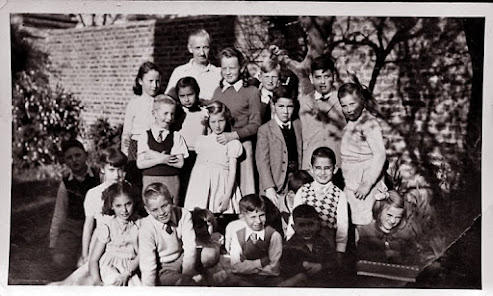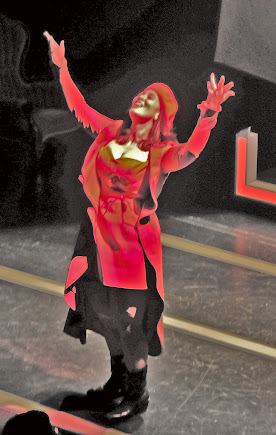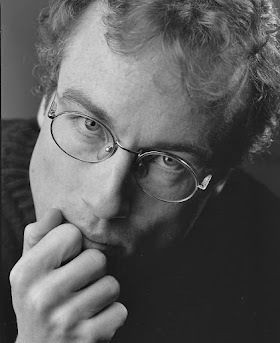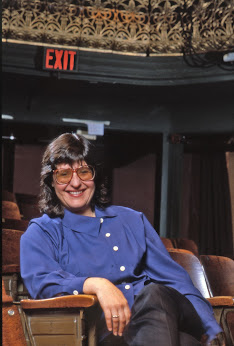Every Time Was a First Time
Saturday, October 18, 2025
 | | Colleen Hughes |
Borges
writes often that every first time, when repeated, will still be the first time. I
am not all that sure I agree.
In that last
century, especially in the 80s and early 90s, I photographed many beautiful
ecdysiasts that showed patience with my amateur bungling. It was thanks to
their patience that I eventually became better. One of those patient muses was Colleen
Hughes. She even posed for me in Lighthouse Park.
But today I
decided to look into her files again after my social media Facebook showed me a
blog I had written about her some years ago. It is this one. Perfection Deferred
When I
looked at the files it hit me like a bolt that some of these photographs are
good for one reason. I did not use my neutral and boring studio. I photographed
her in her home where she was comfortable, could change clothes but best of all
the existing light (no flash) and the window light came through.
No at my age
of 83 I do not see myself taking pictures like this again. I don’t know young
women and the women I know do not feel comfortable showing their age.
I might just
correct Borges and point out that every first time repeated, provides
cumulative improvement that comes with experience. And Below more of Colleen Hughes blogs: El Pelo de Una Mujer Maddonas and Children My Portable Memory A Spectrum of Red Delight That Chandler Blonde My Helga Lighthouse Park Colleen in tub
None Nicer
Friday, October 17, 2025
Sometimes what I find I
never knew I had lost. I have even forgotten why suddenly one frame of a colour
negative has appeared on my office floor. Because in the upper left it has a
street numbering sign with the letter a as in “1560 a 1565”, my guess is that it
is either in Spain or in Mexico.
I rarely take street
photographs particularly in Vancouver where I live. I am sure that if I
photographed an articulated B-Line Bus on Broadway and gave the result to one
of my daughters or granddaughters they could make money with it in 30 years.
Often I write that with
the loss of neon signs and the taking over of tall condos with gray, blue or
green tinted windows in Vancouver, Fred Herzog would not be inspired to shoot anything
here.
At the same time I know
that if I boarded a plane to Mexico City, once there, I would be take street
photographs. It would seem that just like nostalgia is for a place not where
you live, the same applies to street photographs.
If I were Borges I could
weave a story about the three old women in my photograph. All I can say is that
my obsession with association makes me think of the Scottish pipe tobacco I
used to smoke. It was called Three Nuns and it was advertised as “None Nicer”.
Perhaps my Rosemary with
her better memory might have remembered. Now I find it almost uninspiring to
think that I could take street photographs anywhere without her as company.
Noble It Is
 | | Hydrangea 'Quercifolia' 17 October 2025 |
Gardeners,
and I am one, like to apply the word noble to plants that are easy to grow and
perform without fuss. It is especially so in the use of the word noble
(pronounced naw-bleh) in Spanish. If you have a good friend that comes to your
help “es un amigo noble”.
Rosemary and
I had 37 varieties, including species, of hydrangea in our large Kerrisdale
garden. When we moved to Kits I picked only three. One of them is Hydrangea
'Quercifolia' (quercus is the botanical name for the oak tree). This hydrangea
grows wild in the state of Georgia.
All the very
large inflorescences are now brown but there are two or three that are small
and white like in spring. This hydrangea and some odd confused rose might make
the last of my plant scans for the year.
In Spanish
the common name for a hydrangea is hortensia. This lovely sounding name was a
popular name for women in the past century. Hortus is Latin for garden.
Imperfect Sympathies
Thursday, October 16, 2025
 | | Buenos Aires - 31 August 1950 |
"We
read not only because we cannot know enough people, but because friendship is
so vulnerable, so likely to diminish or disappear, overcome by space,time,
imperfect sympathies, and all the sorrows of familial and passional life."
Harold Bloom - How To Read and Why (2000)
That above
statement is now constantly in my thoughts.
Because my
Manila grandmother lived with my mother most of my life and she died in 1970 I
was very attached to my abuelita. In my present house besides having her
photographs I have some of her personal stuff including a silver drinking cup
when she was a little girl in school. The Living or the Dead
I agonize what to do with
her possessions as I am not sure that my daughters or granddaughters would
value them. I wrote a blog about it (link above) and
sent it to a first cousin in Buenos Aires who shared our grandmother. He
answered coldly without asking me about the possessions and told me that if nobody
wanted them just to throw them away.
Whenever I call anybody I
know I am met by a universally provided Telus answer. Generally I just hang up.
I remember many years ago that one of the members of the CBC Vancouver Radio
Orchestra had a hilarious answering machine message. It was funny and not
clinically cold.
Perhaps my anguish on this coldness has to do that I lived for many
years in Mexico where there is a lot of affectionate human contact universally
known as “the abrazo”.
As the days get shorter and I must now wear long-sleeved flannel shirts
I am not looking forward to my hermetic life with my two cats. To illustrate this blog my Uncle Tony (my mother's broother) took the photograph at my 8th birthday in our home in the Buenos Aires barrio Coghlan. How was I to know then that all those smiles one day would be wiped by death or Bloom's imperfect sympathies. The boy on the left in shadow was my friend Mario Hertzberg. He lived across the street. One day when I visited him I spotted a framed photograph of him. I inquired. He told me it was not him but of his brother who had died in a concentration camp in Germany because he was Jewish. It was my first awareness that the world was not just full of smiles. It was that same year, 1950, when my mother as she was combing my hair said, "Alex your fleco (bangs) on your head makes you look like Hitler. That was the first time I heard that name. At about that time he and I were walking one day to the train station and we were stopped by a Capuchin monk. He greeted us and asked us if we believed in God. We were affirmative but I pointed out that Mario was Jewish. With a big smile the monk said, "That makes no difference since we all believe in the same God." Take that 21st century! I'm in the centre, bottom row, and my father top left.
Fire Never Dies: The Tina Modotti Project - Movement Galore
 | | Melissa Oei |
Last night I went to the opening of Carmen Rodriguez’s
Fire Never Dies: The Tina Modotti Project. I was sitting next to a man with a
lovely smile. He looked familiar but at my advanced age of 83 I had to ask him.
Kevin Kerr, he was and I immediately made his connection with the Electric
Company Theatre.  | | Kevin Kerr uncharacteristically not smiling |
There was a ghost sitting not far from me. She was
Vicki Gabareau whom I had photographed sitting at the Cultch Theatre many years
ago when she had returned to her Vancouver home town.
 | | Vicki Gabareau |
A third ghost was sitting next to me. She was my
Rosemary, who died five years ago and accompanied to most of the shows at the
Cultch and the York.
Nor far was my Chilean friend Carmen Aguirre and
costume designer Carmen Alatorre. I almost felt at home.
Why almost? In years back I was an amateur music,
dance and theatre critic with my blog. After a performance I would go straight
home, download my photographs and write. This time around, there was the relief
that I did not have to anything and just go home.
It was not to be, because I noticed in the credits:
Choreography: James Gnam. I never did photograph him (I did his brother Connor
Gnam) but I saw him as a stellar performer many times.
Looking at Kevin Kerr it immediately came to me that
many years ago an Electric Company Theatre had staged a production that involved choreography by Crystal Pite in which even the opening and closing of the
theatre curtains was choreographed. I wrote about that here. Studies in Motion with Crystal Pite
Watching all the performers dance and move, and
especially Melisa Oei as Sagradz Corazon
(lovely costume on her by Carmen Alatorre, as you can never go wrong
with fishnets) it seemed that every movement, not only the dances were
choreographed.
Because theatre can be choreographed I also know that
dance can be theatre. The
proof I saw in August 2023 when Béatrice
Larrivée & Noa Lee Ashkenazi in a performance at the Arts Umbrella Dance
Company’s theatre dancing the method Gaga (Batsheva Dance Company) was how
their facial expressions and their movements when they were close to each other
was all acting, all theatre. Béatrice Larrivée
I will leave others to write about Carmen Aguirre’s fine
play. For me I was moved by all that movement. But I must thank Aguirre for having Tina Modotti and Sagradx Corazon dance to some spectacular Ástor Piazzolla.
|













